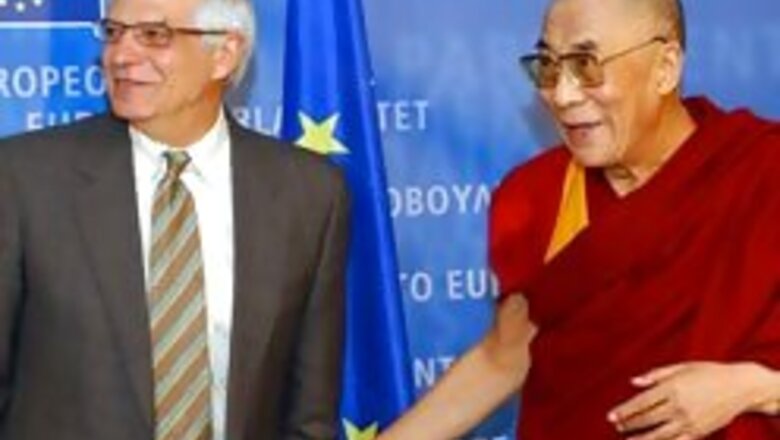
views
Brussels: The Dalai Lama on Friday called for an end to "corruption of the highest level" and dirty tricks between large nuclear powers at the United Nations, so the global body can better fight poverty and end conflicts, notably in Africa.
In a rare statement of criticism, the spiritual Buddhist leader called for reform of the 191-nation organisation, calling the current system outdated and unable to reflect the reality of today's world.
He said with the growth of United Nations membership, having only five permanent Security Council members is "undemocratic."
He added that countries on the council with nuclear weapons capabilities should not have a "permanent right" to dominate other nations.
"This is wrong," the Dalai Lama told a news conference. He also said with the U N being "a body of the governments, so not necessarily the body of humanity," representatives there are "always making tricks" and the poor people suffer in the end.
"Look at Africa, Darfur," the Dalai Lama said.
"The United Nations are a structure, it's a political sort of authority, they are representatives of the governments, so then unfortunately behind the scenes they are always making tricks," said the Dalai Lama.
"I think there is some kind of corruption of the highest level and the poor people suffer, look at Africa, Darfur."
The spiritual leader, who is on an eight-day visit to Belgium, called on the U N to "act more actively, more effectively" and ending "lip service" and empty promises of help.
"That is my view, maybe too much criticism, sorry," he said. "I am just a simple Buddhist monk, sometimes I think like that."
He called for a total ban of all nuclear weapons as a way to further world peace and for the creation of a world body of eminent "thinkers, or scientists - individuals who are really committed to peace and who can promote those ideals without nationalist prejudices".
The Buddhist leader also reiterated his demands for autonomy for his native Tibet, an issue he discussed with E U lawmakers at the European Parliament earlier this week.
The Dalai Lama fled his homeland during an anti-Chinese uprising in 1959 and now heads a government-in-exile based in northern India.
















Comments
0 comment